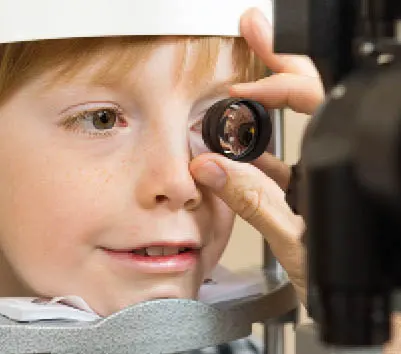For every parent, the health and safety of their child comes before anything else and that includes taking proactive steps to safeguard their vision. The first question that most parents ask pediatric ophthalmologists is ‘how to improve child eyesight’. We understand the significance of healthy eyesight in their overall well-being and development. Today screens are unavoidable – almost. That is why a lot of parents have realized the importance of prioritizing eye care. Through personal experience, I have implemented effective strategies that have successfully protected my child’s vision and promoted optimal eye health. In this blog post, let’s explore eye care tips for kids and see how to improve child eyesight.
Regular eye exams are the foundation of maintaining good eye health for children. These exams, conducted by qualified eye care professionals, can detect and address vision issues or eye conditions early on. Schedule your child’s first eye exam during infancy, followed by regular exams throughout their school years. By doing so, you can get to know about any red flags in your child’s eyesight. These eye exams also allow for early detection of more serious conditions such as lazy eye (amblyopia) or crossed eyes (strabismus), enabling timely treatment and maximizing the chances of successful intervention.
Excessive screen time can strain your child’s eyes and contribute to various eye sight problems in children. Encourage a healthy balance between screen time and other activities. According to the guidelines set by the Indian Academy of Pediatrics- pediatric ophthalmologists advise that children below the age of 2 should not be exposed to any screens be it TV, mobile, laptop etc. For children aged between 24 to 59 months, supervised screen time should be limited to a maximum of one hour per day. Also if your child is aged between 5 to 10 years, ensure less than two hours of screen time per day only. Remember, moderation is key when it comes to screen time, as excessive exposure screen time can affect children’s behavior and development. By setting reasonable limits, we can help our children develop healthy habits and maintain a well-rounded lifestyle.. These recommendations emphasize the importance of managing and monitoring screen usage to ensure the well-being and healthy development of children at different stages of their early years.










